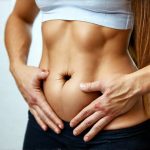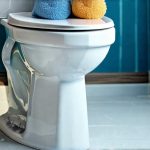Urge incontinence, the sudden, strong urge to urinate followed by an involuntary loss of urine, can significantly impact daily life. It’s more than just a frustrating condition; it affects confidence, social activities, and overall well-being. Many people experiencing this struggle often feel hesitant to discuss it, leading to unnecessary suffering and delayed intervention. However, understanding that urge incontinence is frequently manageable – and sometimes even improved – through lifestyle adjustments, including dietary modifications, can empower individuals to take control of their bladder health. It’s crucial to remember that you are not alone, and seeking support from healthcare professionals is always the first step toward finding effective solutions.
This article delves into practical daily diet tips designed to help manage urge incontinence symptoms. While these suggestions aren’t a cure-all, they can play a substantial role in reducing frequency, minimizing accidents, and improving your quality of life. We’ll explore how specific food and beverage choices can influence bladder function, focusing on strategies you can implement immediately. Remember that consistency is key; small changes consistently applied over time yield the most significant results. This information should be used alongside advice from your doctor or a qualified healthcare provider – it’s intended to complement, not replace, professional medical guidance.
Dietary Strategies for Bladder Control
The connection between diet and bladder health isn’t always immediately obvious, but it’s profound. Certain foods and drinks can irritate the bladder lining, leading to increased urgency and frequency. Others can actually support bladder function by promoting hydration and reducing inflammation. Understanding this interplay is the foundation of a dietary approach to managing urge incontinence. It’s not about restrictive dieting; it’s about making informed choices that benefit your overall health and your bladder.
A core principle is avoiding known bladder irritants. These include caffeine, alcohol, carbonated beverages, artificial sweeteners, and spicy foods. Caffeine acts as a diuretic, increasing urine production, while alcohol has similar effects and can also disrupt the nervous system’s control over the bladder. Carbonation introduces gas into the digestive system, putting pressure on the bladder. Artificial sweeteners, although seemingly harmless, have been linked to bladder irritation in some individuals. Spicy foods contain compounds that can inflame the bladder lining, triggering urgency. Identifying your personal triggers is essential – what bothers one person may not bother another. If you are looking for a more detailed understanding of dietary adjustments, consider exploring bladder-friendly diet tips.
Beyond avoidance, focusing on bladder-friendly foods and beverages is equally important. Water is paramount; adequate hydration dilutes urine, reducing irritation. However, avoid drinking large amounts at once, which can overwhelm the bladder. Instead, sip water consistently throughout the day. Foods rich in potassium (bananas, sweet potatoes, spinach) can help regulate nerve function and reduce bladder spasms. Fiber-rich foods promote regularity, preventing constipation, which can exacerbate incontinence symptoms by putting pressure on the bladder. Finally, incorporating anti-inflammatory foods like berries, fatty fish (salmon), and olive oil may help soothe bladder irritation.
Foods to Limit or Avoid
The list of potential bladder irritants can seem daunting, but it’s about being mindful and making gradual adjustments. Many people find success by eliminating one item at a time and observing the effects on their symptoms. Keeping a food diary is an incredibly useful tool for identifying personal triggers. Record what you eat and drink, along with any associated urgency or leakage episodes. This provides valuable insights into which foods are contributing to your incontinence. To help track these patterns, review daily food diary tips for tracking flare patterns.
- Caffeine: Coffee, tea, energy drinks, chocolate.
- Alcohol: All types of alcoholic beverages.
- Carbonated Beverages: Soda, sparkling water, fizzy juices.
- Artificial Sweeteners: Found in diet sodas, sugar-free candies and gums. Look for ingredients like aspartame, saccharin, and sucralose.
- Spicy Foods: Chili peppers, hot sauces, curry dishes.
- Acidic Fruits & Vegetables: Citrus fruits (oranges, lemons, grapefruit), tomatoes, pineapple. While generally healthy, these can irritate the bladder in some individuals.
- Dairy: For some, dairy products can contribute to inflammation and worsen symptoms. Experiment with reducing or eliminating dairy to see if it makes a difference.
It’s important to note that everyone reacts differently. Some people may be able to tolerate small amounts of certain irritants without experiencing significant issues. The key is to listen to your body and adjust your diet accordingly. Don’t automatically assume you must eliminate everything on this list; start with the most common culprits and gradually refine your dietary habits based on your individual experience.
Hydration Strategies for Bladder Health
Proper hydration is vital, but it’s not simply about how much water you drink – it’s also about when and how you drink it. As mentioned earlier, gulping down large quantities of fluid at once can overload the bladder and increase urgency. Instead, aim for consistent sips throughout the day. This helps maintain a steady level of hydration without overwhelming your system. A general guideline is to consume 6-8 glasses of water daily, but individual needs vary depending on activity level, climate, and overall health.
Consider spreading your fluid intake evenly throughout the day. For example:
1. Drink a glass of water upon waking.
2. Sip water consistently during meals.
3. Have small amounts between meals.
4. Reduce fluid intake 2-3 hours before bedtime to minimize nighttime trips to the bathroom.
Beyond water, other hydrating beverages can be beneficial – herbal teas (non-caffeinated), diluted fruit juices (limit sugar content), and clear broths are all good options. Avoid sugary drinks, which offer little nutritional value and can exacerbate bladder irritation. Pay attention to your urine color. Pale yellow indicates adequate hydration, while dark yellow suggests you need to drink more fluids.
The Role of Fiber and Potassium
Fiber plays a surprisingly important role in managing urge incontinence. Constipation puts extra pressure on the bladder, worsening symptoms. A diet rich in fiber promotes regular bowel movements, relieving this pressure and improving bladder control. Good sources of fiber include whole grains (oatmeal, brown rice), fruits, vegetables, legumes (beans, lentils), and nuts. Gradually increase your fiber intake to avoid bloating and gas.
Potassium helps regulate nerve function and can reduce bladder spasms. A deficiency in potassium has been linked to increased urinary frequency and urgency. Excellent sources of potassium include bananas, sweet potatoes, spinach, avocados, and beans. Incorporating these foods into your diet can help stabilize bladder activity and improve overall bladder health. Don’t rely solely on dietary sources of potassium. If you suspect a deficiency, consult with your doctor about potential supplementation. Remember that any supplement should be taken under medical supervision.
For those seeking more tailored advice, especially concerning meal planning, exploring daily meal tips for men with frequent urge can provide valuable strategies. Understanding your body’s specific responses is key to effective management and a better quality of life. Additionally, consider how daily planning tips to minimize bathroom urges may complement dietary changes.
This information is for general knowledge and informational purposes only, and does not constitute medical advice. It is essential to consult with a qualified healthcare professional for any health concerns or before making any decisions related to your health or treatment.





















